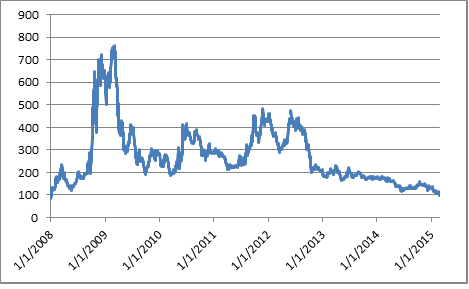To rise up and go it alone against the establishment is not an easily made decision. Despite corporate managers and governments urging transparency, ethical behaviour or the flagging of any unfair or outrageous behaviours, the truth is that, more often than not, such calls are mere publicity stunts. On more than one occasion did such rhetoric prove to be hypocritical as those who raise the carpet to reveal the garbage are ostracised as those running the show escape unscathed to become the heralds of fairness.
A recent article in the Financial Times lays bare the weaknesses of some of the largest companies in how they treat the whistleblowers. They end up marginalised and pushed out, while the culprits carry on with their business protected by their position of power.
The same applies to a country. Once at the helm, would you reveal the fiscal problems that you find and remained hidden from the public? If the answer is Yes, here comes the second question. Even if you knew that it would lead to higher sovereign financing costs and temporary adverse currency movements?
Here is a true story about politicians tempted to break the mirror reflecting the reality instead of trying to take charge of what is swept under the carpet. Like in cases encountered at times in the corporate world, the fault is not with the offender, but with those who report the inappropriate behaviour or decisions.
 In 2010, Andreas Georgiou, a savvy IMF economist left the US for Greece to become the first independent chief of the Greek National Statistics Commission. He had won a strict selection process conducted by the Greek authorities against two other local contenders. His was about to be a major role. He was supposed to end the long period of official data manipulation which painted a better picture of the Greek economy and budget than it actually was and misled and defied the whole international community.
In 2010, Andreas Georgiou, a savvy IMF economist left the US for Greece to become the first independent chief of the Greek National Statistics Commission. He had won a strict selection process conducted by the Greek authorities against two other local contenders. His was about to be a major role. He was supposed to end the long period of official data manipulation which painted a better picture of the Greek economy and budget than it actually was and misled and defied the whole international community.
The quality and thoroughness of his work earned him the recognition of the European Commission but also six years of court trials against the very Greek authorities which, after having selected him and once the results were made public mounted a whole campaign against him for lack of “flexibility” and being a pawn of the foreign interests that the IMF and the Commission represented. At stake was the 2009 re-evaluation of Greece`s budget deficit, the main reason for the imposition of the austerity programme by Greece`s donors.
In October 2009, the Karamanlis government reported a deficit of 6% of GDP. Two days after he had lost the elections Greece reported a 12.5% deficit (twice as much!) only to have the figure finally put by Mr. Georgiou, in his official capacity, at 15.4% of GDP.
The story may go on, but it is worth noting that Mr Georgiou was subject to investigations and had to deal with prosecutors four times in as many years. Each time they concluded that all the gentleman did was apply the EU accounting methods and committed no crime. That did not stop his opponents and proponents of conspiracy theories to continue to drag him through the courts even after he returned to the US in 2015.
From where I stand, bringing fiscal inconsistencies out in the open, despite some setbacks over the short term as investors who had trusted what they had been told reposition, presents clear benefits over the long term. It is all about the credibility of a country which is so easy to lose and so hard to regain.
See below the changes in Romania CDS (insurance bought by investors to protect themselves should Romania default) which needed almost six years to get to pre-crisis levels after a nearly threefold increase in 3 – 4 months as the crisis that hit the country revealed its fiscal weaknesses.

To put it differently, it took years to regain investors` confidence which was lost almost overnight due to budgetary recklessness pushing the budget deficit to an unexpected 4.8% in the second half of 2018.
To maintain its credibility, a country needs to tell the truth about the state of its budget even if that hurts. A mirror that does work should never be broken.
Have a nice weekend!
Subscribe to receive notifications when new articles are published
